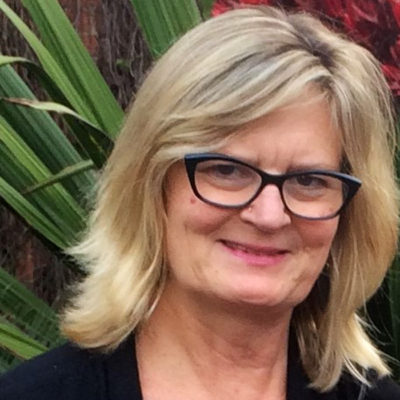
Vijay Mago
Vijay Mago
(Health Systems Management & Health Data Analytics)
Vijay Mago, PhD is an Associate Professor at the School of Health Policy & Management at York University, specializing in health informatics and analytics. His research interests include health informatics, text analysis, natural language processing, big data analytics, and the modeling and simulation of complex health systems.
Previously, Dr. Mago served as Chair of the Department of Computer Science at Lakehead University and was the inaugural faculty-based Research Chair. He is highly successful in attracting grants from various agencies and organizations, including PHAC, NSERC, SSHRC, MITACS, ONCAT, the Canada Revenue Agency, and private organizations based in Canada and the USA. He has published extensively in Tier 1 conferences, including IJCAI and Findings of ACL, and in high-impact journals such as ACM Computing Surveys, Applied Soft Computing, and numerous medical informatics journals. His research focuses on innovative methodologies using soft computing and artificial intelligence techniques to address systemic challenges such as homelessness, obesity, and crime.
Current Projects:
Project Title: Artificial Intelligence and Internet Technologies to Enhance Real-Time Surveillance of Substance-related Harms
Abstract: In collaboration with the Canadian Centre on Substance Use and Addiction and the Urban Data Centre at the University of Toronto, this project is funded by the Public Health Agency of Canada’s Enhanced Surveillance for Chronic Disease Program. The objective is to develop an innovative NLP-based surveillance system to monitor substance-related harms in real-time. This AI-driven solution will gather data from various media channels, synthesizing information to provide a comprehensive overview of substance use trends, clusters of morbidity, and mortality across Canada. The project focuses on enhancing public health response, particularly for communities disproportionately affected by substance use. Traditional surveillance methods lag in data collection; this AI-powered system offers timely insights to empower early intervention and targeted public health action. Paid Funding Opportunity: This project offers both paid and unpaid positions, depending on candidates’ prior expertise and proficiency in programming, particularly in utilizing advanced large language models (LLMs) and foundational knowledge of natural language processing (NLP) techniques.
Project Title: Empowering Healthcare Professionals: Integrating GPT for Improved Chest Pain Management in the Emergency Department and Low-Resource Settings
Abstract: In collaboration with Dr. David Savage from NOSM University, this project is funded by the Northern Ontario Academic Medicine Association to design a large language model (LLM)-based solution for diagnosing and managing chest pain. Starting in April 2024, the project focuses on enhancing diagnostic support for new physicians and nurse practitioners in remote First Nation communities in northern Ontario. This AI-based approach addresses the challenges faced by rural emergency departments (EDs), where access to critical care can be limited. By integrating GPT models like ChatGPT into clinical workflows, the project aims to improve diagnostic accuracy and patient outcomes, enabling healthcare providers to make more informed decisions in real-time. ChatGPT will help analyze symptoms, suggest diagnostic tests, and recommend management approaches, ultimately reducing diagnostic errors and enhancing patient safety.
Paid Funding Opportunity: This project offers both paid and unpaid positions, depending on candidates’ prior expertise and proficiency in programming, particularly in utilizing advanced large language models (LLMs) and foundational knowledge of natural language processing (NLP) techniques.
Project Title: Quantifying and Predicting Code Black Events to Improve EMS Response in Thunder Bay
Abstract: This project, funded by the Northern Ontario Academic Medicine Association, tackles the critical issues faced by Superior North EMS (SNEMS) in Thunder Bay. Post-COVID-19, SNEMS has experienced increased call volumes, staffing shortages, and ED delays, leading to a rise in Code Black events, where no ambulances are available. Our initiative seeks to quantify Code Black occurrences using historical ambulance call data, establishing a methodology for trend analysis to serve as a quality indicator. By identifying patterns in Code Black events—often triggered by ED overcrowding and limited primary care access—the project will support evidence-based resource management. Additionally, with upcoming updates to the electronic health record system, predictive modeling will be incorporated to forecast Code Black events, allowing SNEMS to take pre-emptive actions. This project represents a significant step toward enhancing emergency response, healthcare analytics, and overall patient outcomes in Thunder Bay.
Paid Funding Opportunity: Funding is available to support a research associate/assistant with expertise in healthcare analytics and a data scientist with skills in predictive modeling.
Website: datalab.science
Elham Dolatabadi
(Health Systems Management & Health Data Analytics)
Elham Dolatabadi, PhD is an Assistant Professor and early-career researcher at the Faculty of Health, cross-appointed with the Lassonde School of Engineering at York University. Recognized as an emerging leader in machine learning (ML) for health, she is also an affiliated faculty member at the Vector Institute and a member of Connected Minds. Before joining York University, Dr. Dolatabadi was a Scientist and Health Lead at the Vector Institute, where she led multiple large-scale projects with hospitals, government bodies, and private-sector partners across Ontario and Canada. Her research centers on creating an Equity-AI synergy in health, integrating insights from health sciences, computer science, social sciences, and psychology to ensure AI evolves as a positive force in public and individual health. Her work advances equitable, impactful AI for health across six key areas: deploying clinical AI models, developing conversational AI for mental health support, creating health sensing technologies, utilizing NLP and foundation models for public health surveillance, promoting fairness and ethics in health AI, and advancing multimodal learning for health.
Dr. Dolatabadi’s research explores equity, complementarity, and AI synergy in health leveraging insights from health, computer science, and society— so that artificial intelligence (AI) has a positive impact on health as it becomes increasingly advanced, capable, and adopted
The research focuses on two main directions:
1. Health AI Interplay. This objective explores unintended harms and conflicts – particularly in health disparities – arising from the interactions between AI design, training, and evaluation processes with social determinants of health (SDOH) in applications such as diagnosis, prognosis, and cost-efficiency. Three specific objectives guide this investigation:
(1.1) Data Diversity and Distribution – to investigate how limitations in data diversity, shifts in data distribution, and lack of incorporation of SDOH in AI modelling contribute to health inequities.
(1.2) Application Context and Use Case – to examine how specific use cases in health AI can inadvertently produce inequities.
(1.3) Evaluation and Impact of Advanced AI – to assess the potential harms and biases embedded in current practices for evaluating AI models, focusing on their impact on equitable health outcomes.
2. Responsible AI Development for Health Equity. This objective focuses on creating methodologies and consensus-driven frameworks for responsible and complementary AI in healthcare, ensuring alignment with Canada’s diverse healthcare needs. Three specific objectives guide the investigation:
(2.1) Multimodal, Multisource, and Expert AI Models – to integrate diverse healthcare data sources—such as clinical, imaging, genomic, and environmental data—within expert-model frameworks tailored to specific domains (e.g., cardiology, oncology, mental health).
(2.2) Algorithmic Fairness in Application Context and Use Case – to develop methodologies and open-source tools that optimize AI models, minimizing unintended biases and potential harms across diverse healthcare scenarios
(2.3) Consensus-based frameworks for evaluation– to engage in a collaborative co-creation process with experts, including health professionals, social scientists, ethicists, and patient partners to build consensus on evaluation frameworks that incorporate diverse perspectives and emphasize complementarity.
This research is supported by CIHR (Centre for Research on Pandemic Preparedness and Health Emergencies), NSERC Discovery Grant, and Long COVID WEB.

Elham Dolatabadi

Matthias Hoben
Matthias Hoben
Associate Professor & Helen Carswell Chair in Dementia Care
(Health Systems Management & Health Data Analytics)
The mission of Professor Hoben’s program of research is to improve the health and well-being (quality of life) of persons living with dementia, their family/friend caregivers, and paid care staff.
To do this, Dr. Hoben and his team have various active research projects in the field. Details on each of these studies can be found on the website of his research chair. Throughout the research process, they apply an integrated approach to knowledge translation. That means that they collaborate with a diverse, cross-provincial team of 32 partners, including older adults (some with dementia), their family/friend caregivers, advocates (Alzheimer Societies and caregiver organizations), staff and managers from healthcare settings, and health system and government-level decision makers.
One area of study focuses on adult day programs. Four inter-connected studies (a realist review, a prospective cohort study, a retrospective cohort study, and accompanying qualitative work) assess whether day programs have positive effects on persons living with dementia and their family/friend caregivers, and how and why day programs with different context conditions may bring about different outcomes. Day programs are important since they are one of the few services aiming to support both, the person in need of care and their caregivers (by providing respite). However, they are understudied (especially in Canada) and health systems lack evidence to guide day program policy and practice.
Another large study assesses quality of life among over 3,000 residents in 70 nursing homes across 5 provinces (Alberta, British Columbia, Manitoba, Nova Scotia, Ontario). They are assessing how quality of life varies by resident’s social determinants of health, by nursing home characteristics (e.g., ownership model, staffing, or availability of a person-centred care model), and by province.
Trainees interested in these areas of research are highly welcome on their team. Dr. Hoben already has a diverse group of trainees, some with lived experience as caregivers, many with diverse ethno-cultural backgrounds, and all passionate about improving the lives of persons living with dementia and their family/friend caregivers.

Marina Morrow
Marina Morrow
Realizing Human Rights and Social Justice in Mental Health
(Health Policy and Equity)
Canada, Kenya and Australia are all signatories to the UN Conventional on the Rights of People with Disabilities (UNCRPD), and yet many of the routine practices of mental health care in these countries violate the convention (Brophy, Ryan, & Weller, 2018; Pũras, 2017). Coercive practices are mediated through stigmatizing attitudes and discriminatory behaviours and the use of mechanisms like involuntary detainment and treatment that undermine self-determination and human rights (Edan et al., 2019; Pũras, 2017). Racialized and Indigenous populations are disproportionately impacted by mental health human rights violations (Kisely, Moss, Boyd, & Siskind, 2019). In partnership with service user-led organizations in three countries—Canada, Kenya and Australia (Eviance, Users and Survivors of Psychiatry Kenya & VMIAC) this research is:
- Summarizing existing evidence on human rights violations in mental health care to identify barriers and facilitators of equity.
- Identifying underlying values and assumptions in mental health policies which facilitate or undermine the promotion of equity and human rights.
- Documenting a diverse range of service users’ experiences with involuntary detainment/treatment and other coercive practices in four urban centres in Canada, Kenya and Australia.
- Identifying recovery-oriented, service user-led and user-involved organizations that provide community-based mental health care services, supports, resources, and advocacy for human rights in mental health.
- Developing a framework for ensuring equity and human rights in community-based mental health care based on all evidence.
- Engaging in knowledge mobilization that will build student and service user research capacity and share research findings with a range of relevant audiences to ensure uptake.
The framework we develop will be used to inform policies and practices in order create more just and equitable mental health resources and supports. For more information our website will come online in 2022: socialjusticeinmentalhealth.org
Tamara Daly
(Health Policy and Equity)
Addressing critical knowledge gaps, we investigate how culture and gender matter in creating age-friendly cities. Our goal is to enhance the effectiveness of age-friendly practices in light of demographic shifts associated with both population aging and diversity. We ask: how can age-friendliness support conditions in which all seniors not only maintain healthy active lives, but can participate and create meaning in later life? Our attention to gender draws us to investigate how inequalities and differences between and among women, men and non-binary people play out in seniors’ lives and policy assumptions. Our approach to culture assumes diversities due to global migrations; imperatives for Truth and Reconciliation with indigenous peoples; intra-cultural gender roles; and rich community cultures among people with disabilities and LGBTIQ2S groups, which affect what it means to grow old with dignity and respect. We investigate what makes age-friendly communities promising places with “promising practices” for women, men and non-binary people; those living in poverty; LGBTIQ2S, ethno-racial, indigenous, disability and Dementia communities; families who require specific supports and services; and those who support seniors, especially migrants and domestic carers, who are aging on the job. We recognize that seniors are a mobile population, moving across neighbourhoods and the globe for many reasons, from fleeing persecution to downsizing. For more information please visit our site: imagine-aging.ca.


Liane R Ginsburg
Liane R Ginsburg
Implementing Complex Interventions Designed to Improve Care in Nursing Homes
(Health Policy and Equity)
Interventions designed to improve healthcare delivery or outcomes often fail or have limited success. Unsuccessful interventions waste resources and fail to improve care delivery. Improving implementation efforts in nursing home (NH) settings is needed given scarce resources and concern over cost, quality and sustainability of care for frail older adults. We conducted a couple of interventions designed to improve care in nursing homes including an in-depth concurrent mixed-methods process evaluation of one of these trials—the Safer Care for Older Persons in residential Environments (SCOPE) trial. SCOPE is a year-long intervention that aimed to teach healthcare aide (HCA) led teams to implement improvement initiatives based on best practice guidelines. A total of 31 Canadian NHs participated in this intervention and the process evaluation. A mixed-methods exploratory sequential design was used to develop a conceptual model illustrating how teams, led by Care Aides (PSWs in Ontario) implemented the complex intervention and how the intervention produced change.
Our findings suggest that frontline-led teams can implement complex interventions and that implementation is facilitated by engagement with core technical components of an intervention AND by supportive leadership that creates an environment for resilient teams with positive dynamics and low levels of conflict. Implementation is also facilitated by shifts in role perceptions and power differentials such that genuine engagement and empowerment of HCAs builds efficacy, enhances trust among them and with their professional and managerial colleagues, and helps shift work from task orientation to critical reflection on the care process. Finally, intervention acceptability and perceived outcomes (HCA perceptions of benefits to resident care) are both important for facilitating intervention implementation, achieving buy-in from non-SCOPE team members, and spreading the intervention.
This work is situated in the field of implementation science which focuses on the application and integration of research evidence into practice and policy. It is one one of few longitudinal process evaluations looking at implementation trajectories – shedding light on both implementation processes and outcomes.

Learn More
The Graduate Program in Health at York is an exciting environment to pursue innovative, socially engaging, career-ready education. Contact our Graduate Program Assistant to learn more.
